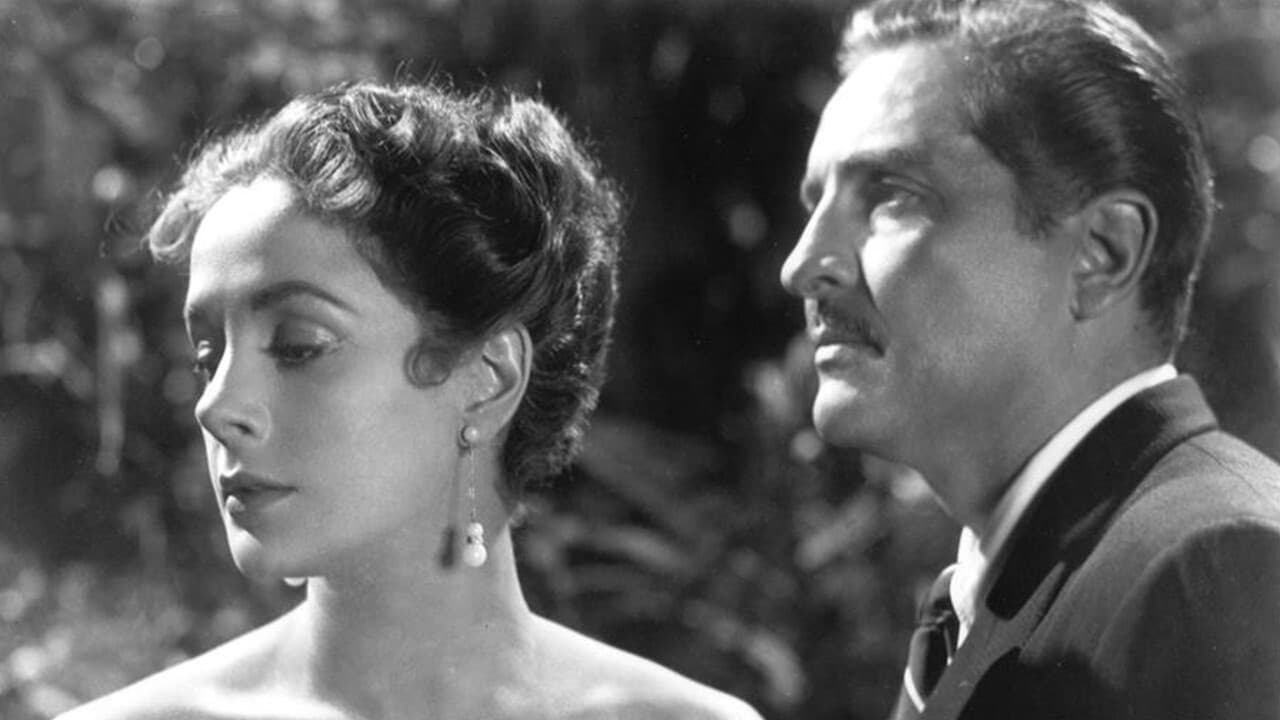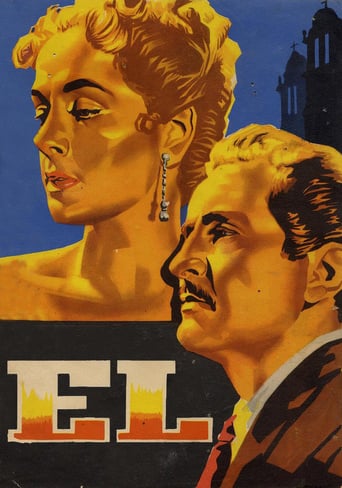

cold, strange, cruel. like majority of Bunuel films. a window to darkness. and too realistic to be only shadow of fiction. it is a good film. and, in many senses, picture of our time. the ball of paranoia and love as scary, the need to control and menace, the desire and the series of masks, the fragility and the madness as form of control, all is, piece by piece, ingredient of our society. this is the secret for who the movie remains impressive. and for who the genius of its director is basis for an inspired art circle. it is a definition of happiness search. and proof of a splendid science of details. a story. and result of an entomologist observations. is it enough ? sure. in measure to be one of the characters.
... View MoreThe first scene is pure Bunuel:the hero attends the high mass,on Good Friday but his soul is not in the right place:this is a festival of feet fetishism ,male feet,female feet ,which the priest kisses .Religion is omnipresent:the rather mature hero is still a virgin -the priests tells it so to his wife- when he gets married .And when the distraught lady tries to find comfort with the others ,she obviously chooses the wrong ones:her mother -every woman must obey her husband,he may not be wrong -,the priest -every woman is Eve and anyway he knows his penitent as his own son- and the servant -in Mexico town where poverty (and shanty towns) awaits ,your master must be right ,and he urges him to get rid of the sinner.The wife suggest he go to see a doctor who could cure his incredible jealousy but it is too late:every fellow man is an enemy ,every eye is a peeping tom's and he's got his needle (to gouge an imaginary voyeur's eye out ) his razor and his rope .He thinks he is the victim of a huge conspiracy and that the human race is abominable: on the steeple,near the bell (a picture which would come back later in "Tristana"),he depicts the other human being as worms scrawling on the ground and he is not far from thinking he is God;in the church,his madness knows no more bounds ,and he's got hallucinations ,thinking that the believers laugh at him ,even the vicar.The picture of the man trying to strangle the priest looks like Bunuel's settlement of scores with a religion the director loathes.Bunuel's humor is present in the last scene in which the psychopath walks :see how he slowly zigzags along.And he seems to go towards a black hole!The movie is a constructed as a long flashback ,a process which is rare in the director's cannon:it's necessary to defuse some scenes such as the shooting:Bunuel did not want to make a thriller,he wanted to make a Bunuel movie!
... View MoreI had these words by Alex Epstein in mind when I left the theater. Before I went to watch Él I knew Hitchcock had taken a bit to draw Vertigo. Well, it's not simply a bit.Buñuel's style is both graceful and low-key. It's a pity this made his work less obviously marvelous to masses. On the other hand if there is something lacking in Él this is a gripping suspense. Something Hitch mastered with his will to enthrall masses. Buñuel's directing is more on the side of actors for us to hesitate between judging the characters and just waiting for more... which is exactly the theme.Bringing psychological torments to screen is definitely not easy a directing choice . It's a challenge for the upper-crust and I remember Hitchcock's Spellbound was not really convincing, neither was Fritz Lang's Secret beyond the door. Yet each brought something to be chewed for others to experiment.
... View MoreSLIGHT SPOILERSEl is similar in style to other productions made by Bunuel in Mexico. It reminded me of both Los Olvidados and Nazarin. Unlike in the early or late films, the style is more realistic and more akin to melodrama. In fact, all three of these films each contain a single surrealist scene. Los Olvidados has the dream, Nazarin has the fantasy where the wife bites off her husband's lower lip, and El has, well, El's surrealist moment comes near the end and is too good to give away. If you've seen the film, I'm sure you know to what I refer. El can be divided up into three easily identifiable sections, each about a half-hour each. The first is told from the point of view of an aristocrat who catches sight of a beautiful woman in church. It's love at first sight, but he soon finds out that she is the wife of a friend of his. At this point, I was fully expecting a cheapy adulterous romance picture, a soap opera. That was the genre that was dominating Mexican cinemas at the time. Luckily, the film doesn't follow a predictable route. There is at this point an elipsis of time, as that first man runs into the woman. He innocently offers her a ride home. Grudgingly, she accepts. On the ride home, she tells him of how her husband's jealously is destroying her. He's an extremely paranoid man, and he has actually threatened to murder her on two separate occasions. She finds opposition everywhere as she is looking for help. The third section of the film is told from the point of view of the husband. His jealousy is starting to lead him off a cliff. The title of the film actually refers to him. "El" is the masculine, singular, definite article in Spanish.Bunuel had a gift for endings. El's is as good as that of Nazarin or Viridiana. By the way, a bit of trivia about that final image: the actor in the cloak at the end of the film, walking down the path, is not the same one who played Francisco in the rest of the film. It's Bunuel. 9/10.
... View More